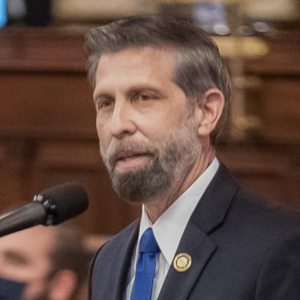In an effort to end human trafficking and protect its victims, the Republican-led state House passed a package of bills last week that is now heading to the Senate.
Pennsylvania was ranked fourth in the nation in criminal human trafficking cases in 2019, according to the 2019 Federal Human Trafficking Report from The Human Trafficking Institute.
It found just over half of human trafficking victims are children and a majority are girls or women. Human traffickers often lure their victims online. They also solicit customers through the internet as well.
Human trafficking is defined as the recruitment, transportation, transfer, harboring, or receipt of people through force, fraud, or deception for forced labor or sexual exploitation. It is believed to be the second-largest criminal enterprise in the world and is growing rapidly.
A bill sponsored by Rep. Craig Williams (R-Chadds Ford) would require those convicted of human trafficking for sexual servitude to register as sex offenders in Pennsylvania.
“As a former federal prosecutor with the U.S. Department of Justice and a former Chief Prosecutor for the Marine Corps Reserve who successfully prosecuted a number of sexual assault and child-victim cases, I know for a fact that sexual predators are renowned repeat offenders,” Williams said. “It is critical that those convicted of sex trafficking for sexual servitude register as sex offenders, so families across Pennsylvania know who is living in their neighborhoods, in just the same way we should know about rapists and child molesters.”
Since 2007, the National Human Trafficking Hotline has received more than 3,700 human trafficking-related calls across Pennsylvania. House Bill 1130 requires those convicted of human trafficking for sexual servitude, or patronizing a victim of human trafficking for sexual servitude, to register under the state’s Sexual Offender Registration and Notification Act (SORNA).
“The impacts of human trafficking – especially for sexual servitude — are vile, dangerous, and devastating for our communities,” Williams said. “I want Pennsylvania families to have every tool possible to fight back against this depravity.”
Rep. Meghan Schroeder (R-Warminster) sponsored to permit expert testifiers regarding sexual and domestic violence to testify in human trafficking cases.
“This will strengthen the ability of prosecutors to combat sexual violence, domestic violence and human trafficking by allowing expert testimony on the dynamics of victim behavior,” Schroeder said. “Expert testimony is critical in these types of cases as it assists in understanding the complex nature of victim behavior, including the reasons victims often refrain from reporting their experiences to law enforcement and continue to remain in contact with their abuser.”
“Many times, in these types of cases, we see grooming by the offender and this expert insight would help a jury understand the mental impacts to the victim,” Schroeder added.
House Bill 580, previously introduced by Schroeder in 2019 as House Bill 2175, would expand the list of offenses where an expert may testify about the dynamics of sexual violence and victim responses to sexual violence.
Also included in the package of bills that passed Wednesday are:
- House Bill 231 would add human trafficking to existing law constituting the crime of unlawful contact with a minor when the trafficking involves sexual servitude or abuse.
- House Bill 246 would prohibit defendants in human trafficking cases from introducing evidence of a victim’s past sexual victimization or allegations.
- House Bill 753 would strengthen the penalty for “Dealing in Infant Children” from a misdemeanor of the first degree to a felony of the first degree as infants are trafficked for future enslavement.
- House Bill 843 would add human trafficking offenses to the list of convictions affecting a child custody determination.
- House Bill 1096 would allow lawsuits against human traffickers to be brought either where the victim resides or where the violations occurred.
- House Bill 1147 would expand the list of offenses that require state inmates to participate in Department of Corrections counseling or therapy for sex offenders to include those convicted of human trafficking involving sexual servitude or other criminal offenses involving sexual abuse of a minor.

